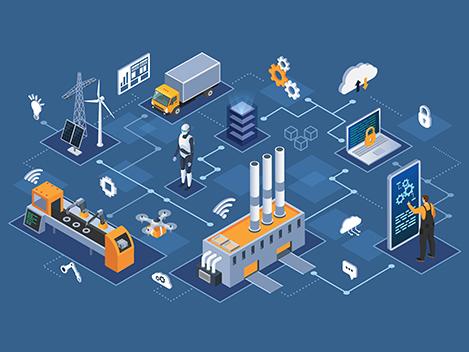
Posted to News on 1st Nov 2022, 15:00
Stratus provides foundation for digital transformation

Manufacturing’s recovery from the pandemic, combined with market trends and predictions for the next few years, all place increasing importance on digital transformation. Jason Andersen, vice president of strategy and product management at Stratus Technologies, highlights how Stratus solutions provide the foundation for transformation and where the company’s platforms fit in the IIoT space.
“Stratus has played a crucial role in successfully supporting mission-critical industrial automation for decades,” he says. “This includes SCADA, HMI and historian database solutions. We agree with many leading industry analysts, who see the evolution of these technologies and Edge Computing naturally supporting the adoption of IIoT, helping to fortify it. IIoT offers exciting opportunities for improving efficiency and productivity, but there are many components to consider beyond machine-intergrated sensors.
“Stratus plays an extremely important role as our hardware and software solutions protect our customers’ networking and communications, data collection and analytics, automated controls, and decision support – which we consider to be the connective tissue of IIoT in manufacturing. We believe that our existing Edge Computing solutions will help customers deploy IIoT more quickly.”
The benefits provided by an always-on infrastructure in an energy management or manufacturing IIoT environment go beyond preventing unplanned downtime. “Stratus plays an extremely important role as our hardware and software solutions protect our customers’ networking and communications, data collection and analytics, automated controls, and decision support – which we consider to be the connective tissue of IIoT in manufacturing,” says Andersen. “We believe that our existing Edge Computing solutions will help customers deploy IIoT more quickly. The benefits provided by an always-on infrastructure in an energy management or manufacturing IIoT environment go beyond preventing unplanned downtime.”
IIoT is breaking into new industries
The evolution toward IIoT enables industrial automation technologies to be deployed in new industries and places. For instance, many process industries, endpoints, and stations – such as an oil pipeline – have needed to be manned by employees. New technologies enable more and more of these remote sites to be monitored and completely human-free. “But this remote visibility comes at a price,” Andersen says. “If the system that provides remote monitoring goes down, nobody knows what is happening. In the natural gas industry, this is known as a ‘blind moment’ and it’s a serious problem.
“This situation is not limited to oil and gas pipelines. As factories in the semiconductor and other industries get larger and more automated, the goal is to achieve enhanced productivity with fewer people. Always-On visibility is a requirement to ensure that goal is met.”
Additionally, compliance comes into play. While data generated by IIoT is critical for production efficiency and productivity, in some industries this proliferation of data will require oversight and reporting. “A good example of this is compliance within the food and beverage industry,” says Andersen. “If your organisation is subject to strict regulations, you can’t afford to lose data as it could result in expensive recalls, audits, or even fines. If your solution runs on hardware or software infrastructure from Stratus, data availability and integrity won’t be a concern because our servers are always on.”
Lastly, the transition to IIoT will come with implementation costs. Many organisations are taking their first steps toward IIoT by deploying virtualisation to reduce costs and embrace digitalisation to future-proof their business. However, the combination of the ‘always-on’ requirements with virtualisation in a non-data centre environment can add unneeded costs and complexity.
“Stratus builds fault tolerance, virtualisation, monitoring, and downtime prevention features into a single solution, providing the foundation for transformation at the edge,” says Andersen. “This provides organisations with a smaller technology footprint that doesn’t require a team of people responsible for many of the clustered environments.
“As business and technology trends continue to reshape the IIoT industry, it is essential to know the best way to select, implement, and capitalise on Edge Computing opportunities with Stratus,” he concludes.
Download our latest white paper, Transformation at the Edge: Architecting Your Infrastructure for Performance and Reliability, for more.
Want the latest machine building news straight to your inbox? Become a MachineBuilding member for free today >>
Stratus Technologies Systems Ltd
Watermans House
Watermans Court
TW18 3BA
UNITED KINGDOM
+44 (0)1784 415220

















